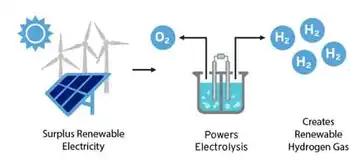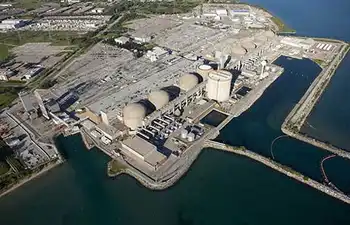- Utilities grilled over response to Isabel
Area utility companies did not plan adequately for Hurricane Isabel last month and failed to communicate with many customers left without power, officials from Maryland and the District of Columbia charged recently.
Members of the Maryland General Assembly questioned executives from Potomac Electric Power Co. and Baltimore Gas and Electric Co. on their activities before and after a series of thunderstorms between Aug. 26-Aug. 30, and Hurricane Isabel on Sept. 18 and 19.
Recently, the companies released comprehensive reports to state regulators describing the restoration efforts, acknowledging some problems but insisting that efforts to restore power were as quick and efficient as possible.
Critics yesterday said the reports from Pepco and BGE showed that many of the problems that surfaced after outages from Hurricane Floyd in 1999 were not resolved. Both companies, in reports required after the 1999 outages, outlined problems with phone and computer systems, as well as fallen trees and broken tree limbs.
"It's the same stupid thing they said in 1999," said Elizabeth A. Noel, director of the District's Office of the People's Counsel, which acts as a liaison between utility customers and regulators. "The [reports] are indistinguishable. They had the same problems."
Analysts said it was too early to judge whether the utilities could have restored power more quickly. But they said public utility commissions should be concerned if problems related to prevention aren't resolved.
"That's certainly an issue," said Bob Burns, a senior research specialist at the National Regulatory Research Institute, a nonprofit group at Ohio State University that collects information on regulatory policy. "When the standard's been set and it's not met the next time, it does create a management implementation issue that the commission is likely to address in some way."
Utilities have said repeatedly that there are no benchmarks with which to measure the speed of restoration because Isabel caused more power outages than any other storm.
Some analysts said Isabel could be compared with Hurricane Floyd in 1999, but others pointed to statewide outages in Maine following an ice storm in January 1998. Between 300,000 and 400,000 people lost electricity statewide for as long as two weeks, and as many as two-thirds of the state's utility poles needed to be replaced.
But Maine officials who recall the outages said the state's largest utility, Central Maine Power Co., was praised by citizens for its restoration efforts, particularly for constantly communicating with customers.
"They told the people, 'We won't be there for a week.' They were up front," said Barbara Alexander, an electricity consultant and former consumer assistance director for Maine's Public Utility Commission. "Every officer devoted themselves 24 hours [a day] to the restoration effort. They were on the radio day and night."
In the Washington area, officials have said they were forced to act as a liaison between the utilities and their customers.
"By Saturday and Sunday, I was feeling like a Pepco employee," Delegate Adrienne A. Mandel, Montgomery County Democrat, said at a joint meeting yesterday of the Maryland Senate Finance and House Economic Matters committees. "I don't think that was an appropriate role for me to be doing."
Delegate Mary A. Conroy, Prince George's County Democrat, said she had the same problem answering questions for BGE customers in her area.
"I am very upset that they were calling me, and I had to answer the phone," Mrs. Conroy told BGE executives at the hearing.
Pepco President William J. Sim said the company recognized that it needed to improve its communications with customers.
"In addition to all the difficulties associated with not having electricity, [customers] felt they were not getting the information they wanted," Mr. Sim said. "They wanted to know when their power would be restored."
Pepco said about 16.1 million hours of electricity were interrupted as a result of fallen trees or broken limbs during Isabel, and that it received 5,600 tree-related calls.
Critics of the company, including Ms. Noel, said Pepco was not prepared to deal with the large number of fallen trees. She said the company failed to effectively coordinate efforts with the District or the National Park Service, which manages Rock Creek Park, near where many of the tree-related outages occurred.
Pepco said in its report that its spending levels for "vegetation management," including tree trimming, have remained "largely constant" since 1999.
But according to figures in the report, spending rose from about $7.5 million in 1999 to $8.5 million in 2000. It retreated to $7.7 million in 2001 and to $6.6 million last year.
"One issue on which I think there is general agreement is that coordination of efforts to clear streets of downed trees and wires needs to be improved," Mr. Sim said at the hearing. "This was a major frustration to everyone involved."
He said that when a tree falls onto power lines and blocks a road, road crews often can't remove the tree because of the power lines and leave. Then the power company workers can't fix the wires because the trees are in the way.
"I know this is at the top of Montgomery County Executive [Douglas M.] Duncan's list," Mr. Sim said, "and we will be working in the coming months to improve coordination of efforts in this area."
Mr. Duncan, a Democrat, said his critical opinion of Pepco's performance did not change following the report.
"It took too long to take care of downed power lines," he said.
He has asked Gov. Robert L. Ehrlich Jr., a Republican, to investigate why it took so long to restore power.
Few analysts have suggested the companies will face long-term financial problems as a result of Isabel.
Pepco said recently that recovery is expected to cost $70 million, most of which will be recorded as a capital expenditure. About $15 million will be recorded as operating expenses, the company said.
Related News

BC Hydro cryptic about crypto mining electricity use
VANCOUVER - In its Nov. 1, 2022 load update briefing note to senior executives of the Crown corporation, BC Hydro shows that the entire large industrial sector accounted for 6,591 gigawatt-hours during the period – one percent less than forecast in the service plan.
BC Hydro censored load statistics about crypto mining, coal mining and chemicals from the briefing note, which was obtained under the freedom of information law because it feared that disclosure would harm Crown corporation finances and third-party business interests.
Crypto mining requires high-powered computers to run and be cooled around the clock constantly. So much so that cabinet…




